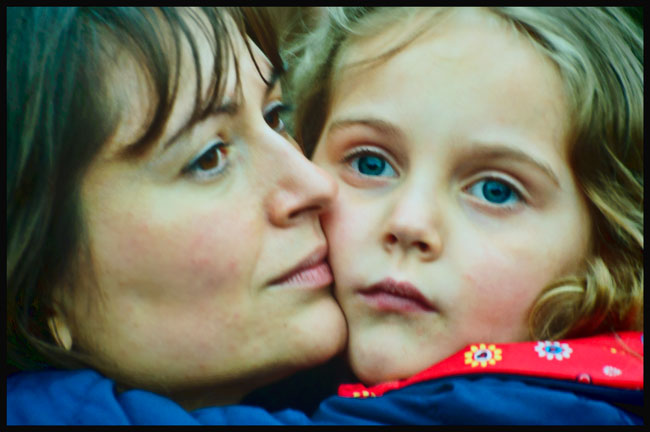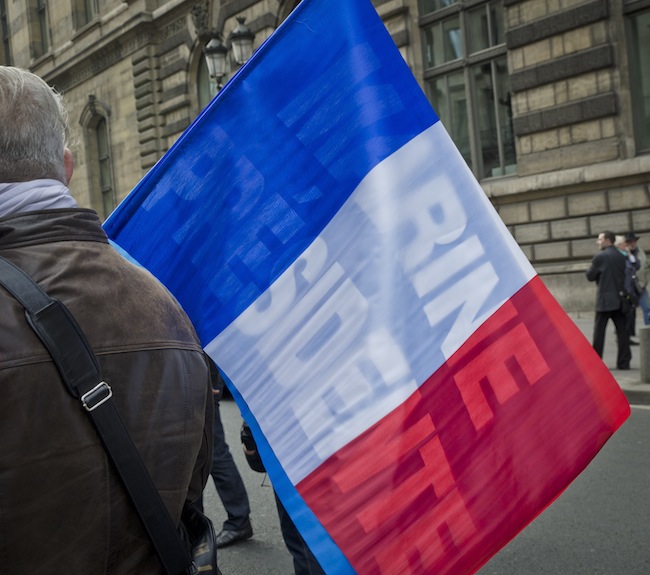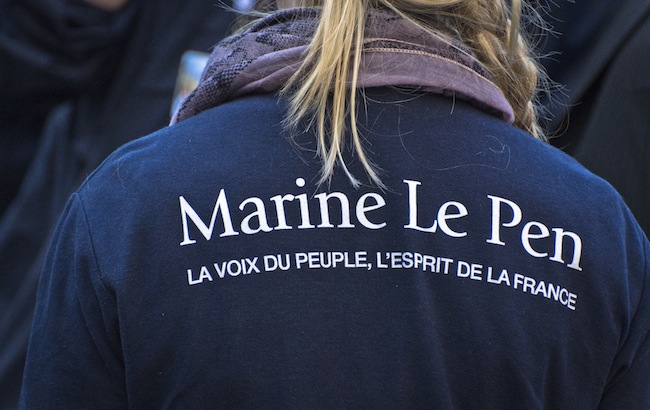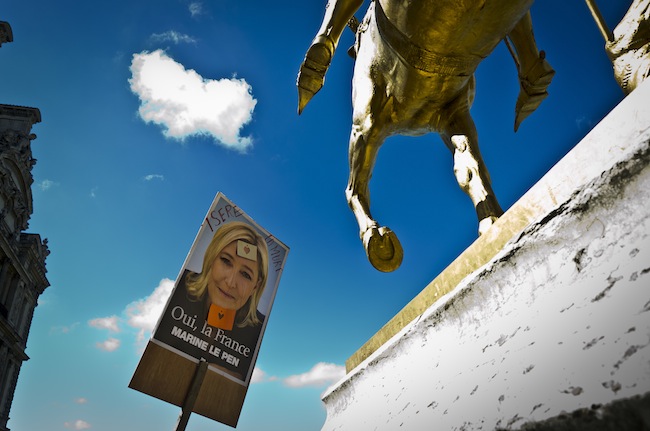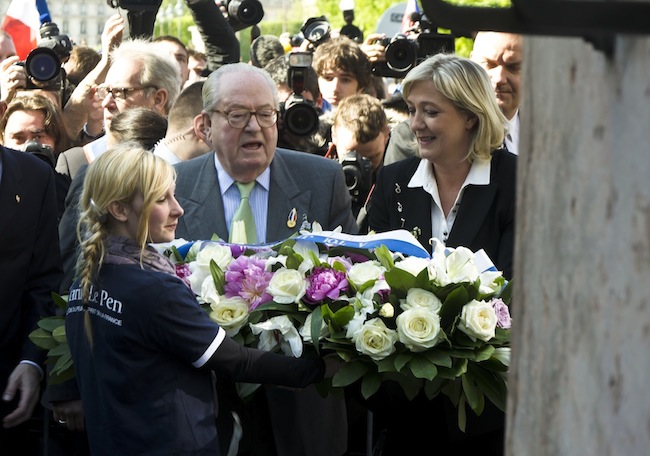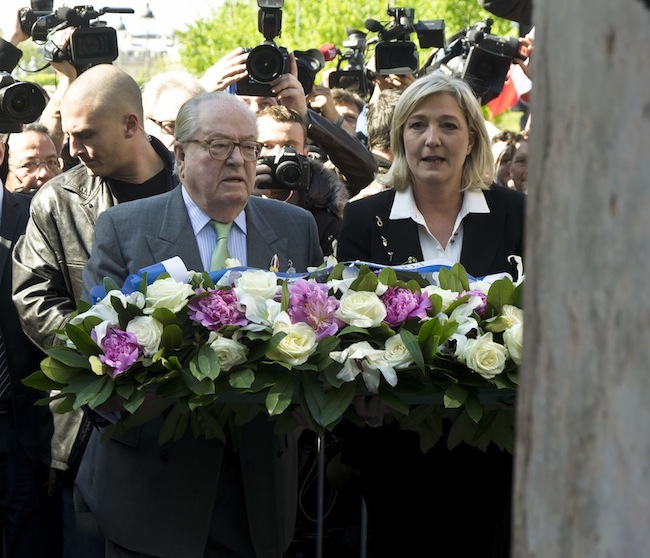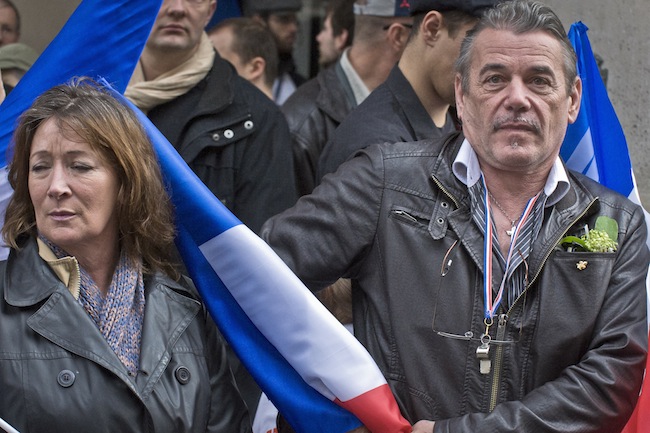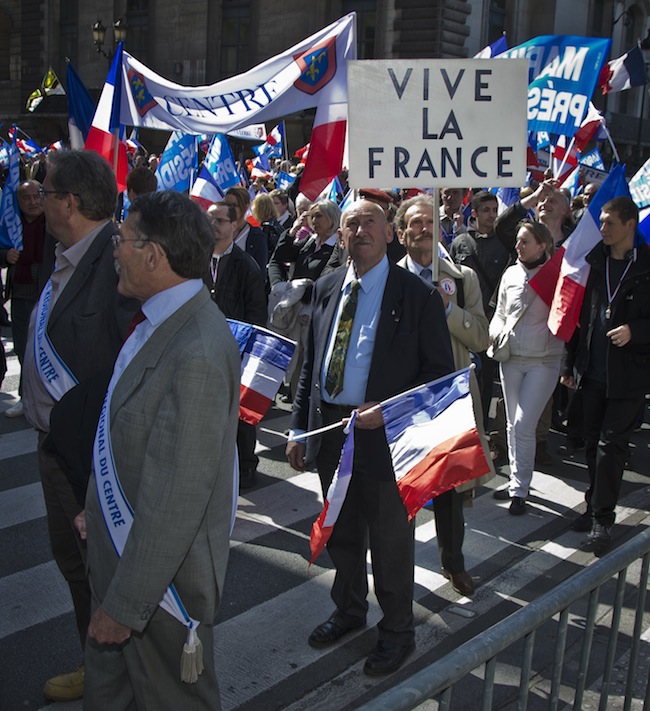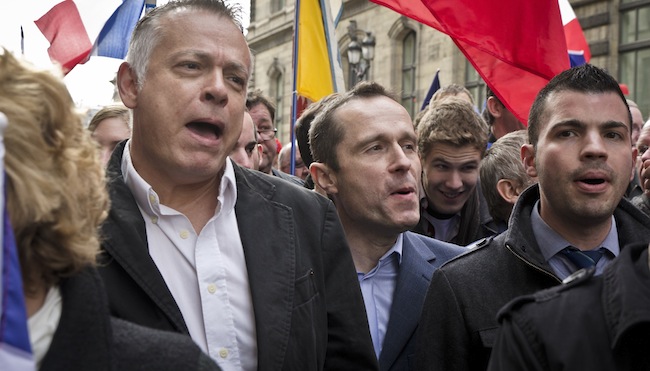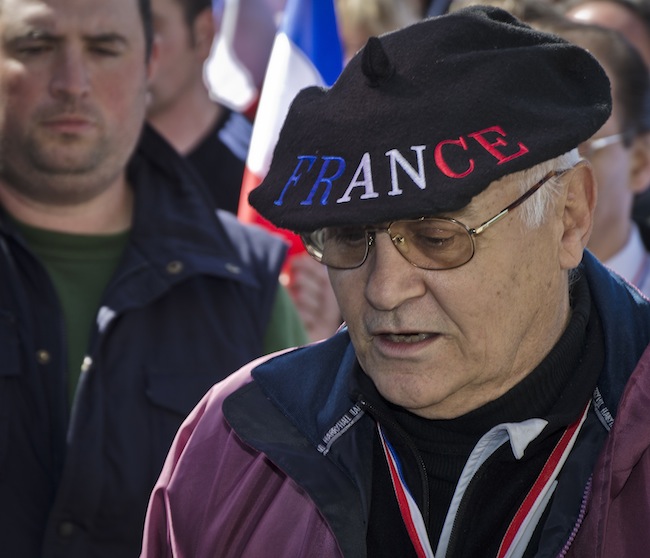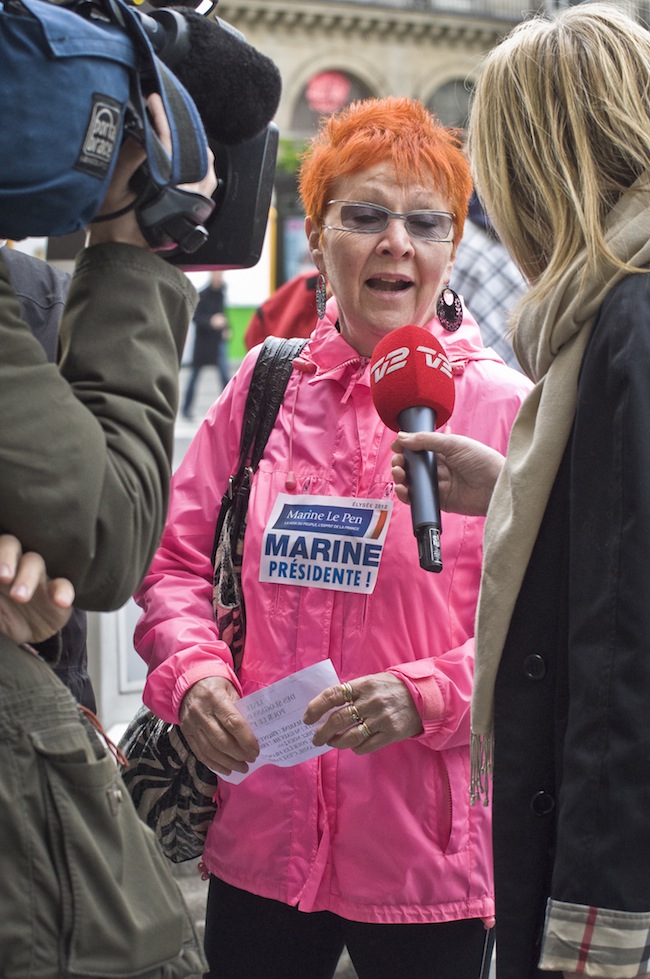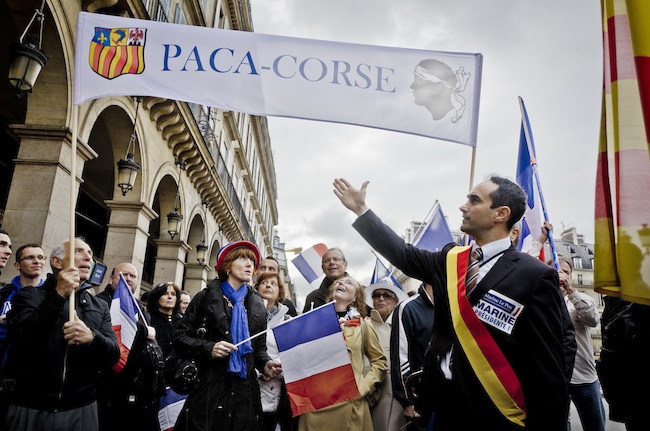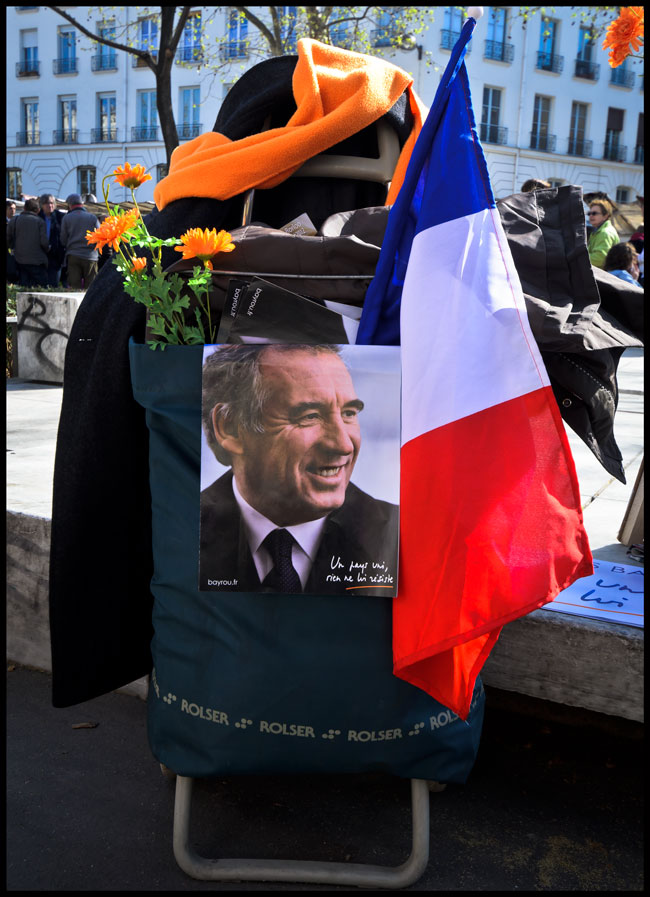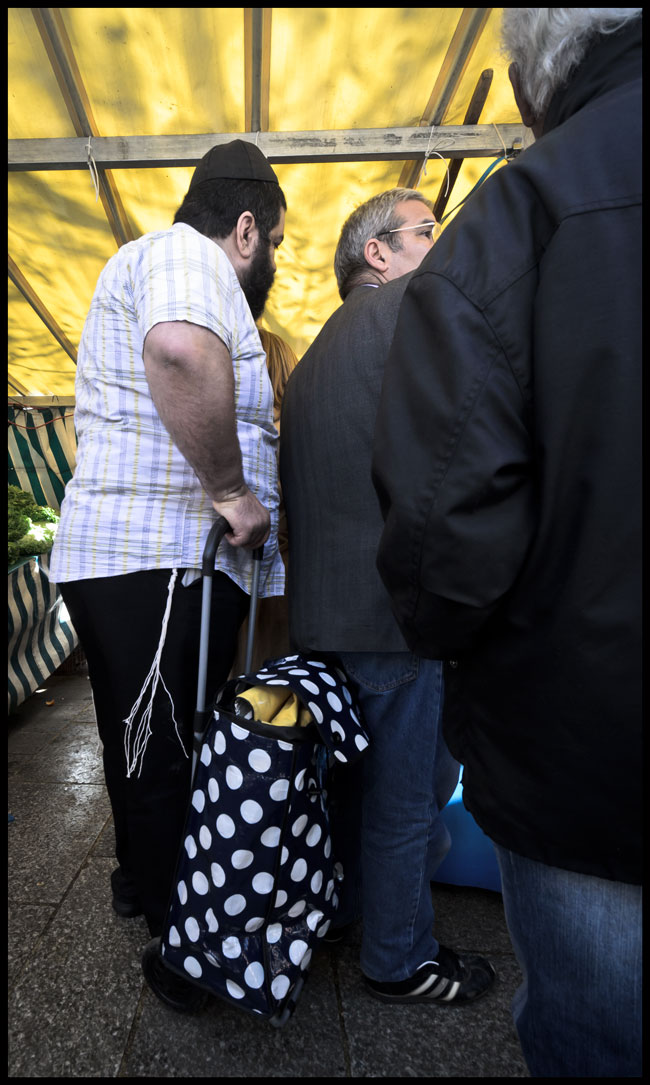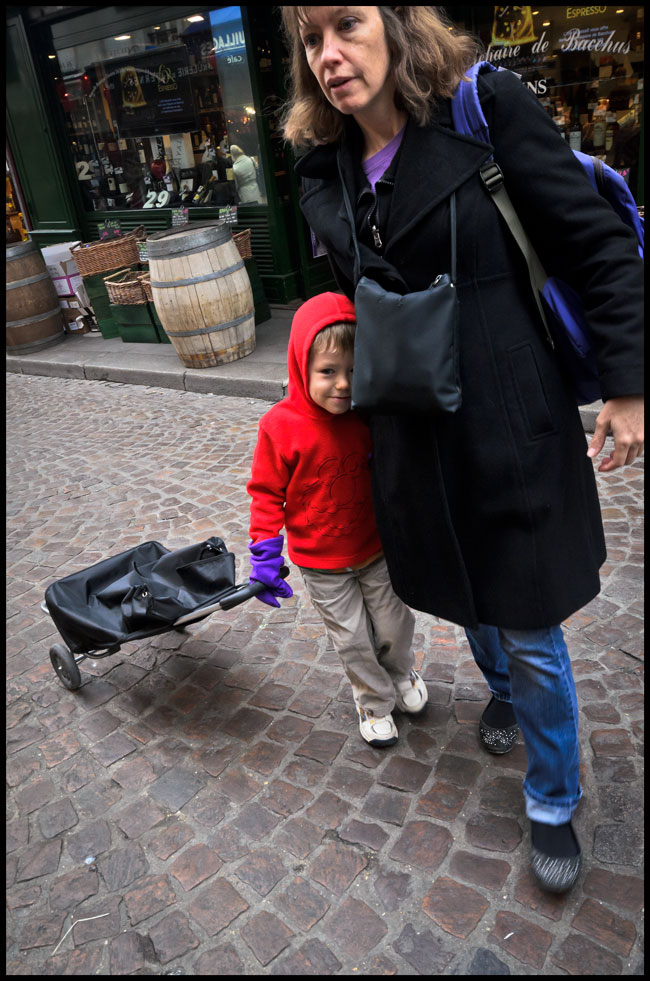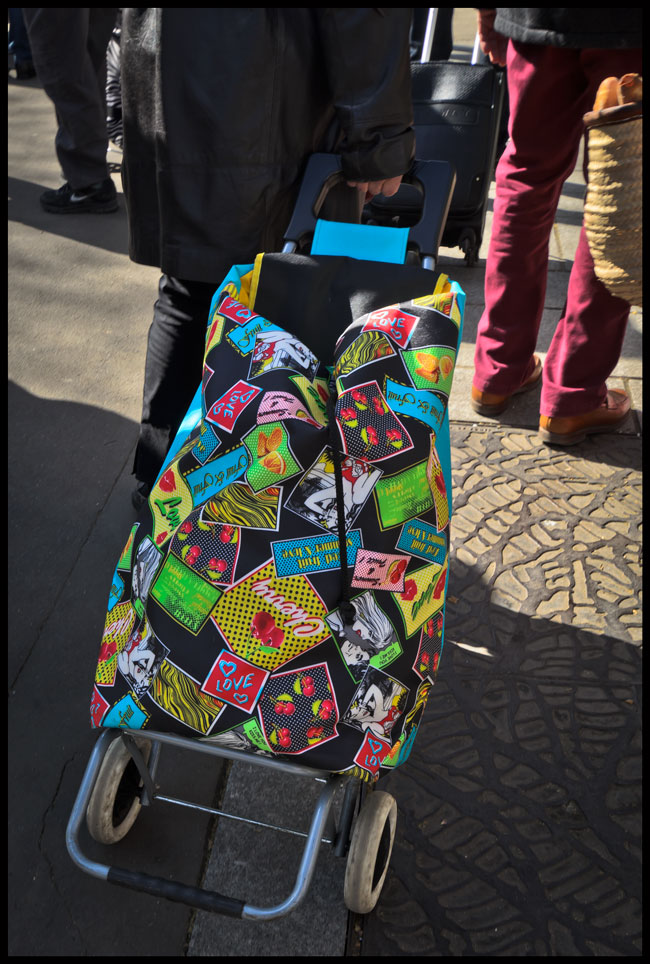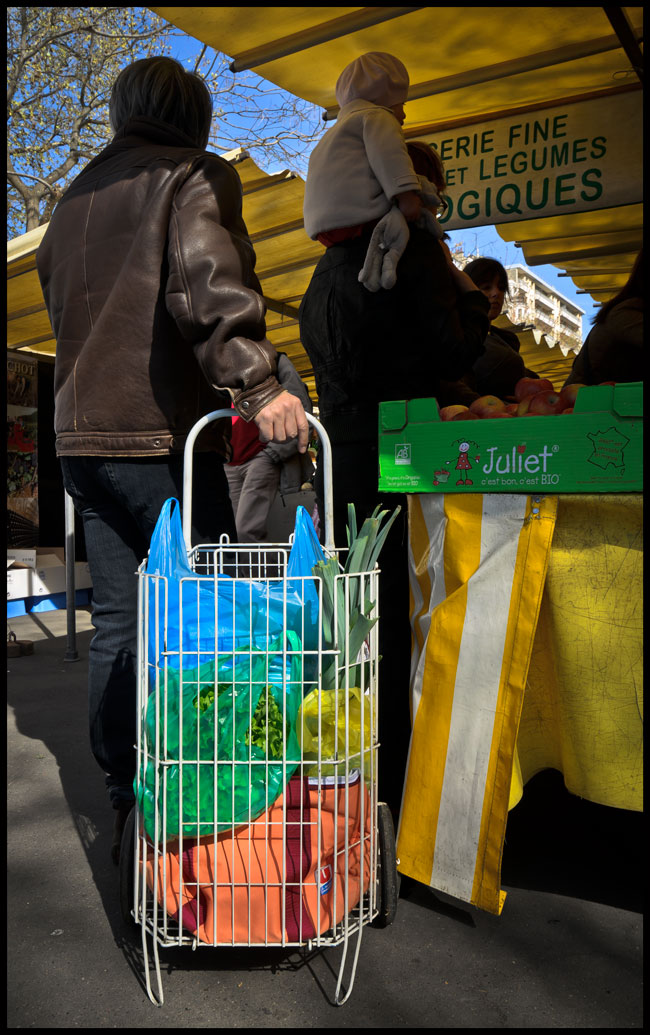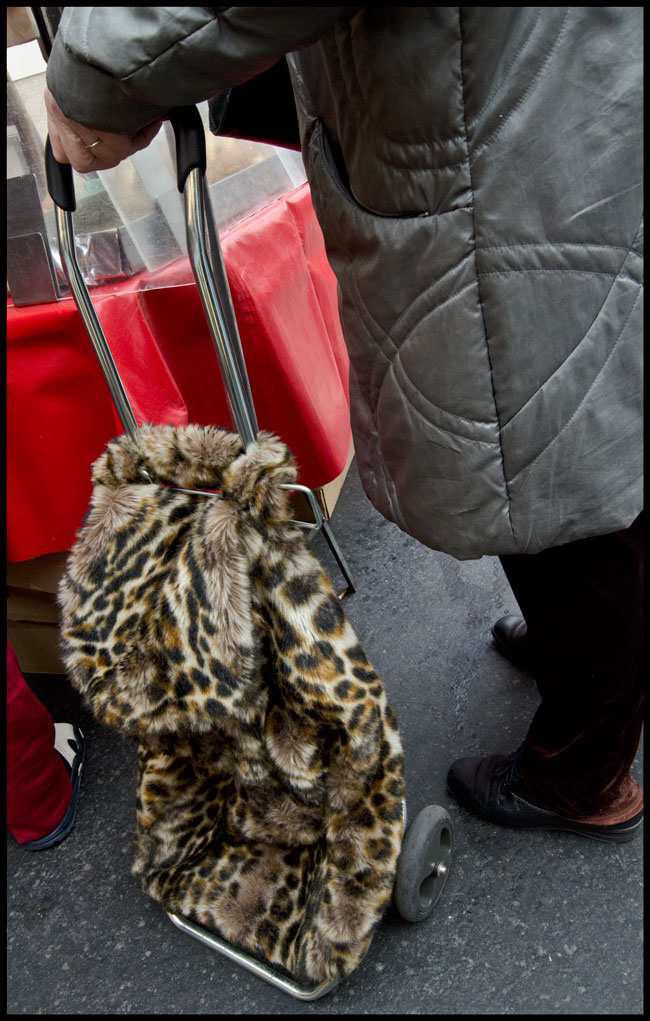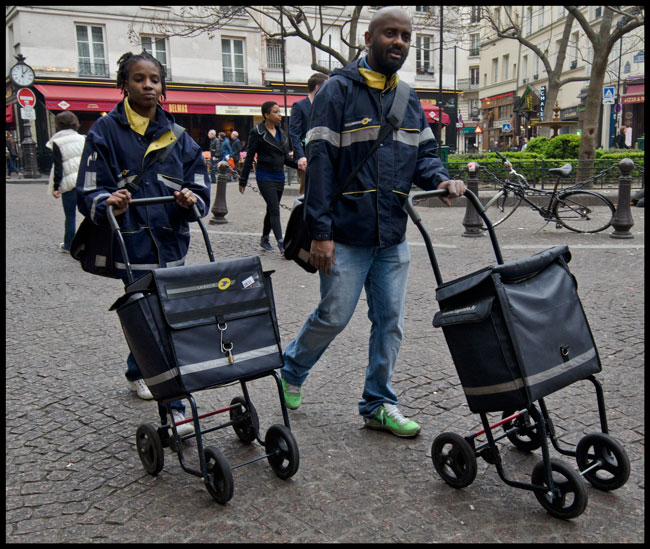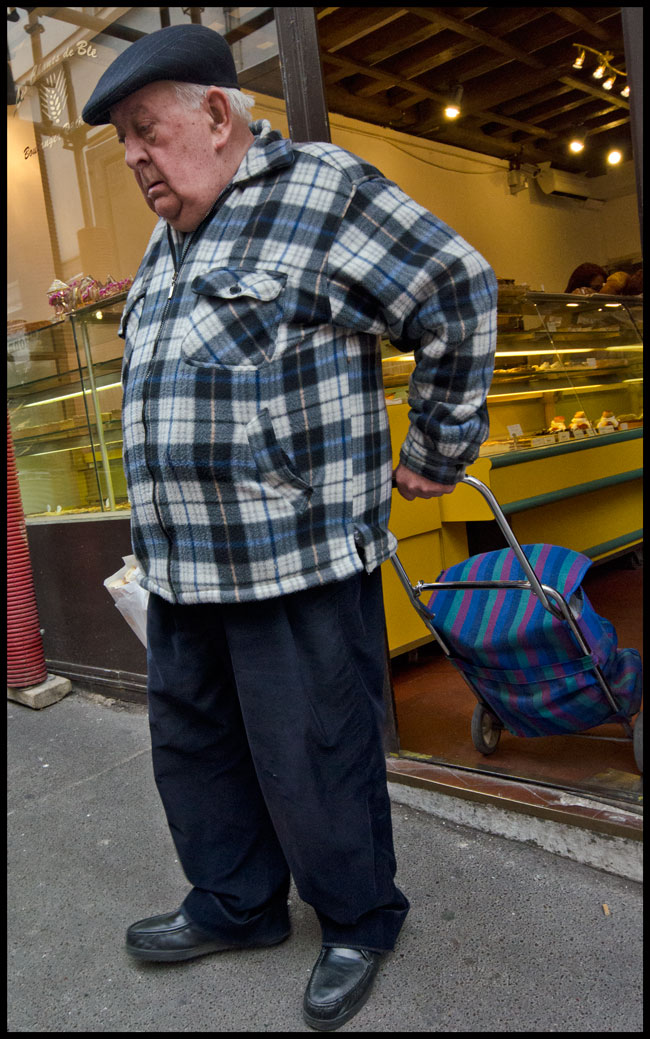Sarkozy, C'est Fini!
 05.9.2012
05.9.2012 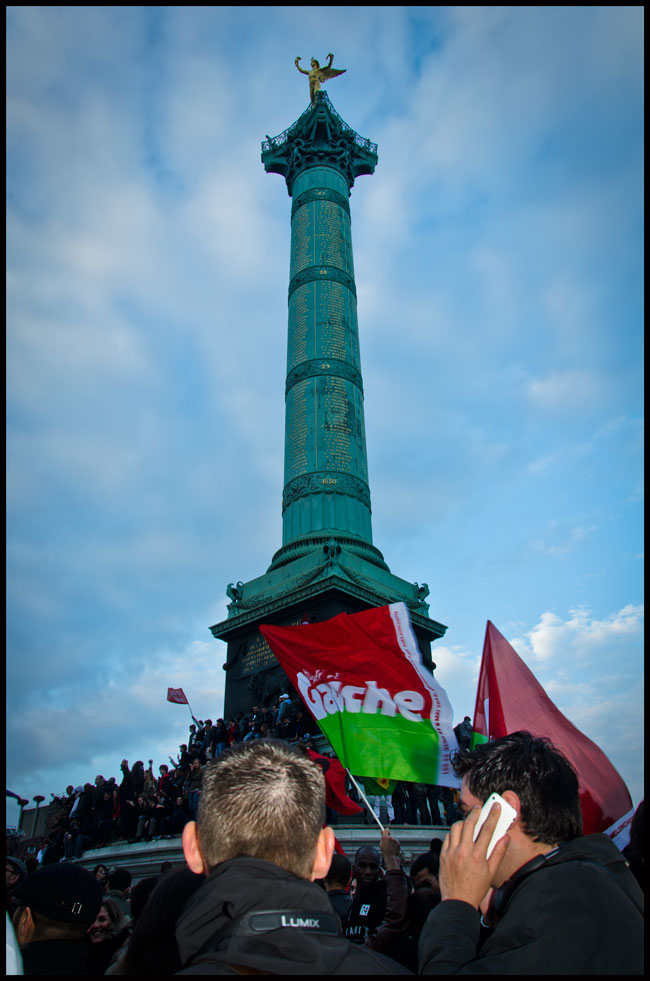
Sunday night, at Place Bastille, where at least a hundred thousand jubilant people gathered under an overcast sky to welcome a new president, it all came down to two chants.
Sarkozy, c'est fini! (SAHR-ko-zee SAY-fee-nee)!
Hollande gagne! (OH-lan GAHN-yea)!
"Sarkozy is finished," and "Hollande won."
So ended the hard-fought and often nasty election campaign which saw France turn for the first time in sixteen years to the Socialists, making the center/right Nicolas Sarkozy a single-term president.
This was the scene a few seconds past eight p.m., when the TV station being broadcast on the stadium-sized screen at Place Bastille flashed François Hollande's photograph, over the percentage of votes (51.7%) that exit polls showed him receiving. The jubilation was reminiscent of Barack Obama's 2008 Grant Park rally on election night in Chicago:
In addition to our exclusive Paris Play video, here are faces of the evening captured in stills, with our impressions, and a word or two about what we think could come next.
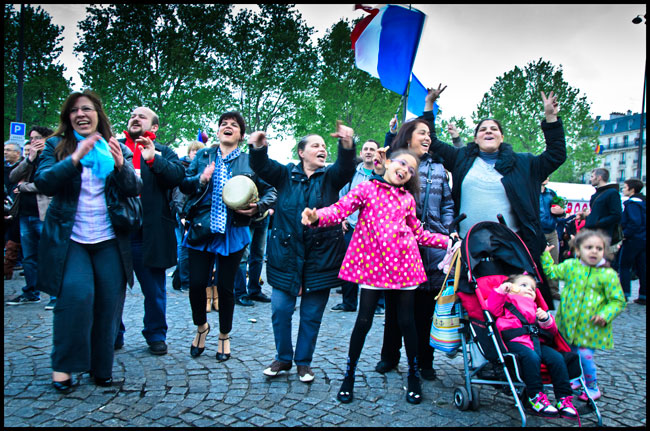 A line of (mostly) women dancing and ululating with glee
A line of (mostly) women dancing and ululating with glee
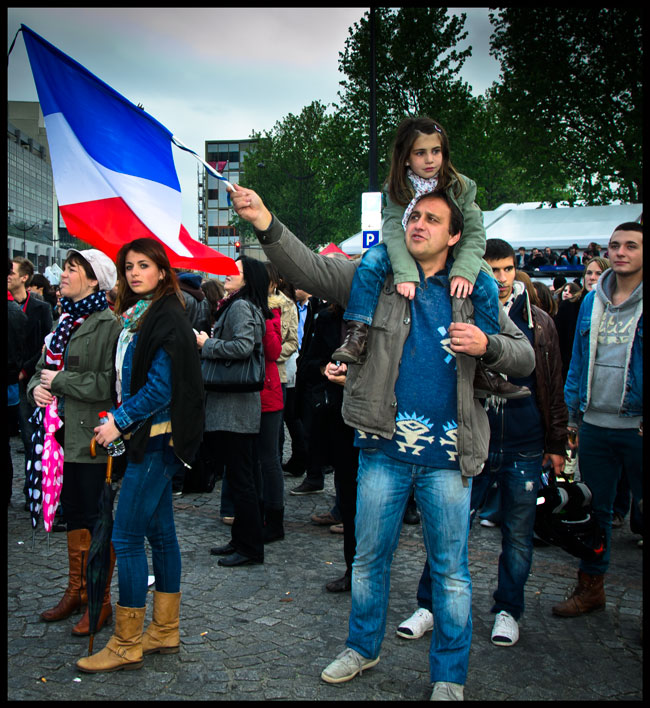 A father and daughter celebrate
A father and daughter celebrate
 And plenty of time for silliness
And plenty of time for silliness
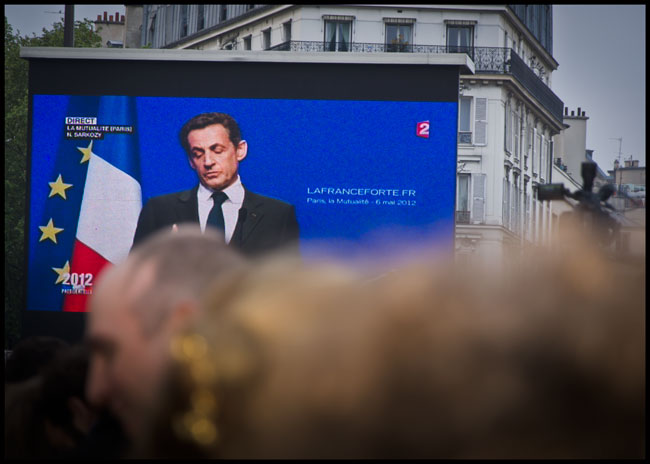 Each time the screen showed a picture of the outgoing president, seen here conceding defeat, the huge crowd booed...
Each time the screen showed a picture of the outgoing president, seen here conceding defeat, the huge crowd booed...
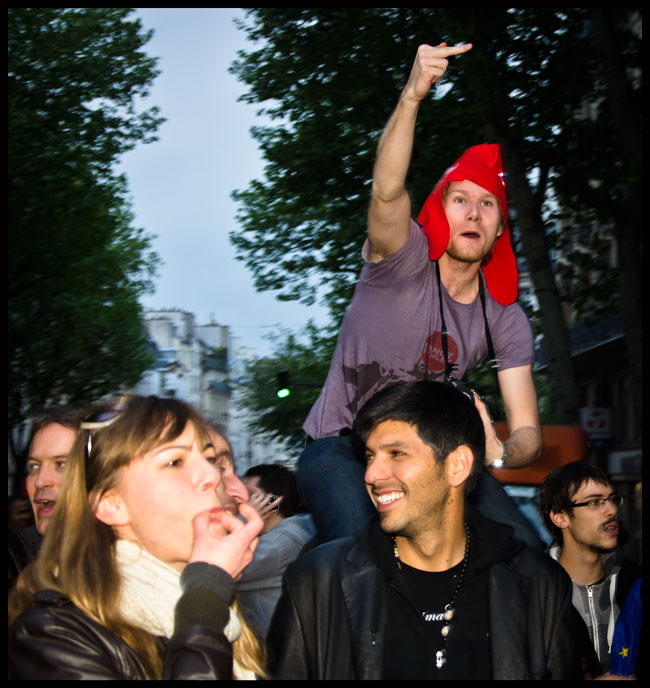 ...or worse
...or worse
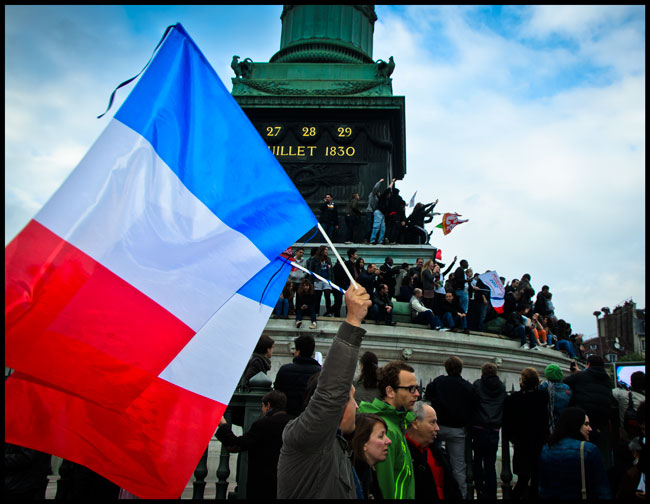 The young and lithe climbed to the base of the famous Bastille column
The young and lithe climbed to the base of the famous Bastille column
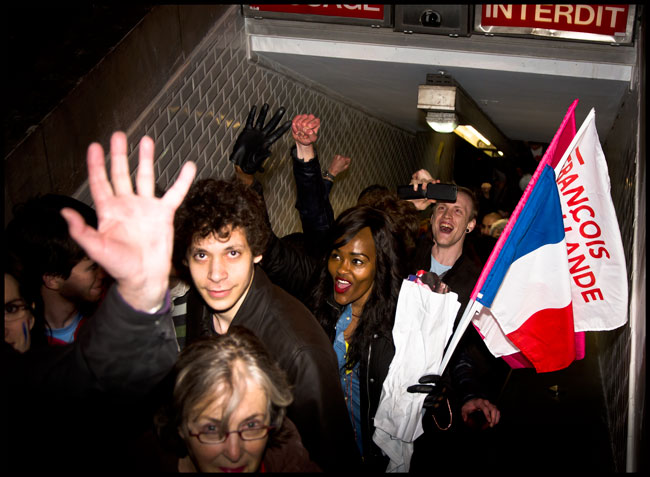 Thousands upon thousands of revelers boiled out of the Metro stations...
Thousands upon thousands of revelers boiled out of the Metro stations...
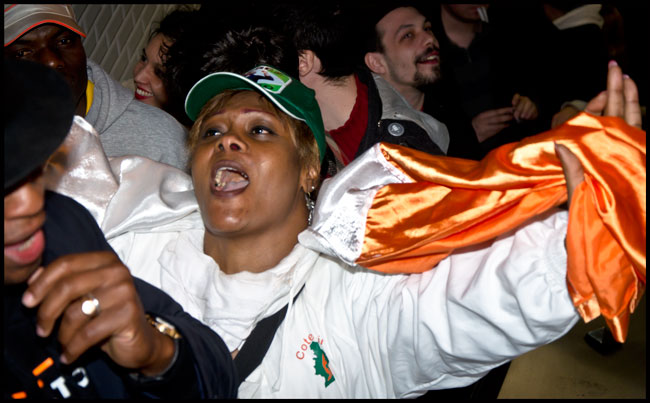 ...and boogied on to Place Bastille, swelling the crowd to at least a hundred thousand strong
...and boogied on to Place Bastille, swelling the crowd to at least a hundred thousand strong
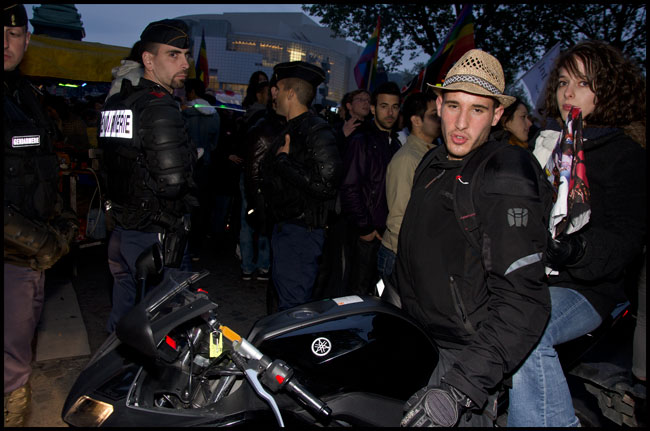 He was disappointed that the police forbade him to ride his motorcycle into the huge crowd...
He was disappointed that the police forbade him to ride his motorcycle into the huge crowd...
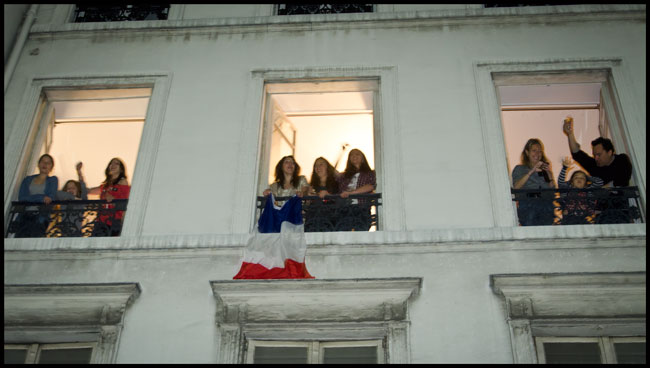 ...while these folks on rue St. Antoine cheered the celebrants from their safe second-floor perch
...while these folks on rue St. Antoine cheered the celebrants from their safe second-floor perch
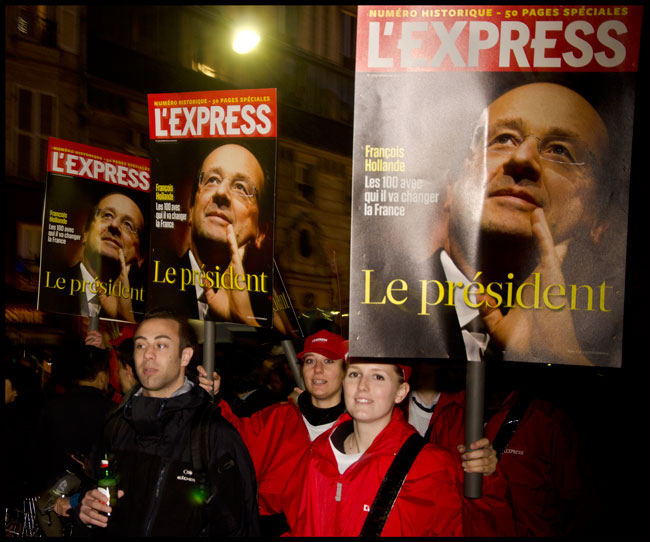 The magazine L'Express was hot off the presses within two hours, while the president-elect didn't arrive to address the waiting crowd until 12:45 the next morning
The magazine L'Express was hot off the presses within two hours, while the president-elect didn't arrive to address the waiting crowd until 12:45 the next morning
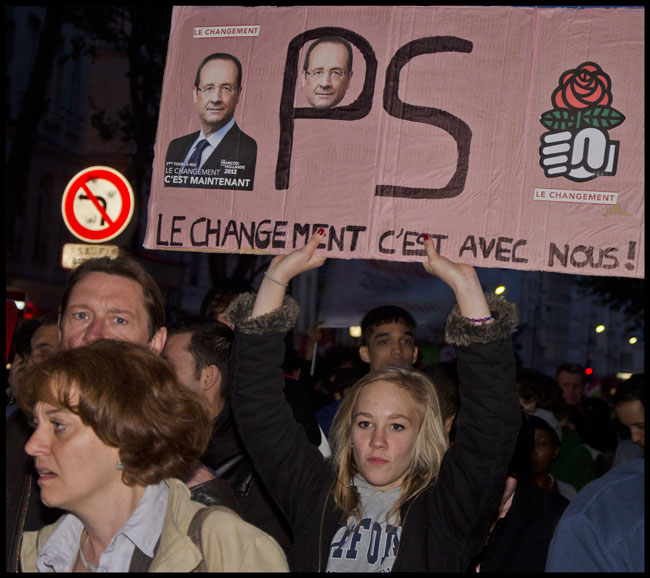 There were plenty of homemade signs, and the crowd was overwhelmingly young
There were plenty of homemade signs, and the crowd was overwhelmingly young
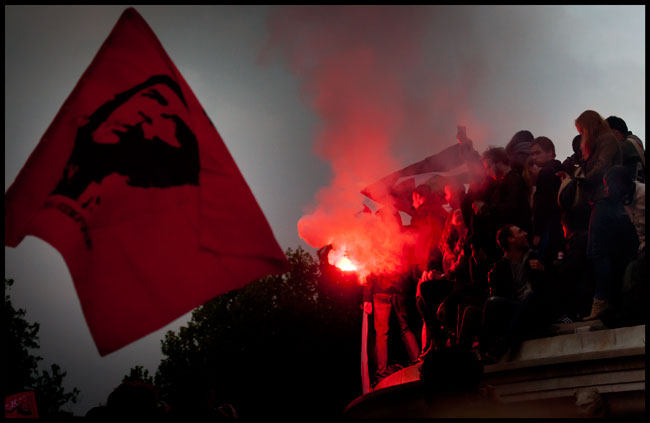 The ubiquitous image of Che Guevara, found wherever leftist internationalists gather
The ubiquitous image of Che Guevara, found wherever leftist internationalists gather
In 2008, when Obama and his supporters celebrated in Grant Park, they did so under a growing economic cloud, the result of the Bush administration's mishandling of the American economy, which meant the celebrations had to be short, because the United States was in crisis. The economy cast a pall that Obama still labors under; as he runs for a second term, the Republicans work to foster the lie that the Great Recession is the Democratic president's fault.
Three-and-a-half years after Grant Park, incoming president Hollande labors under a similar cloud. The European economy is worse off than the United States' (though the entire world economy is yoked together), and France suffers from record high unemployment, as its citizens chafe at the austerity measures the European Union is demanding.
Hollande's victory flies in the face of that demand. He believes (as does American economist Paul Krugman) that austerity is a ridiculous policy in the face of a recession, and that economies must be nurtured with strong government measures to increase employment and strengthen social programs.
The UK newspaper, The Independent, which doesn't like Hollande, grumps that Sarkozy's defeat "...poses once again the question of whether any national leader, of any party, can impose the degree of austerity deemed necessary by the financial markets and remain electable." One of the messages that both left and right were united on this year was that "financial markets" were not governments; the French wanted French elected officials, not Brussels-based European Union bureaucrats, to make economic and political decisions for their country.
Whatever the next weeks, months, or years of a Hollande presidency have to offer, the basic question is, what kind of a world will this young will-be voter, carried by her mother to witness this critical historical moment, find herself in when she comes of age?
